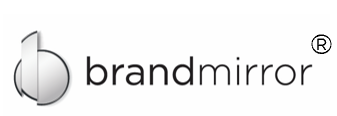Recently, I attended a conference, a day-long event with multiple sessions and a few well-known speakers, with over 5,000 people in attendance. Although I got a great deal out of the experience, some of the actions of some of the speakers really disappointed me. So much so, that I summarized a few thoughts about speaking etiquette. Here are a few that I work hard to adhere too, please share your thoughts in the comments too.
Stay On Time – Don’t Go Over
Whether speaking as a solo gig or part of a larger schedule of events, stick to your allotted time. Going on too long tells your audience, subsequent speakers and the planners of the event that you don’t respect their time. At the conference, one of the speakers went 20 minutes over his time, which had to come from somewhere. As a speaker you should:
- Know how much time you have and prepare for it
- Plan for a Q&A at the end of your remarks
- Have a backup plan for sticking to your time if a prior speaker goes over
Respect Other Speakers Time
As a speaker, every minute you are on stage creates an impression. This includes before and after you speak. Whether you agree with your fellow speakers or not, behave respectfully towards them. At that same conference, one speaker concluded his remarks, and instead of leaving the stage for the next speaker, he sat down on the edge of the stage and signed autographs as if the important part of the day was over. The next speaker was stuck standing on the stage waiting to take his turn. This behavior wasted the time of the next speaker and the audience. This was a speaker that I was very excited to see and yet left me extremely disappointed from a personal brand standpoint.
Know Your Audience
This conference was attended by a diverse group of people, but many were members of the real estate industry – particularly agents. These folks make a living in real estate. Yet one of the speakers got on stage and predicted that the real estate market is about to tank. As a famous, experienced speaker, there were likely many topics he could have taken on to make his point, but he chose one that clearly rubbed the audience the wrong way. And he didn’t do it intentionally: he had no perspective about the audience and no sense of the specific discomfort he was causing his listeners.
On another note, the planners of the event didn’t seem to have a sense of the diversity of the attendees. The speakers were all white men of a certain age. This was a missed opportunity to truly reach and transform the experience of the diverse audience.
Interact & Provide Value
As a speaker, you tell your own story, even if it this means you tell your understanding of the stories of others. There has to be a moment when that story reaches out to the audience and tells them how it relates to their experience, their hopes, and their pain points. Once the bridge is built, a speaker needs to explain the value of their words to the audience. They’ve paid good money, and given up time in their day, to hear what you have to say, so respect that gift by giving a talk with some takeaway that the audience can use. It is critical to get the audience to know, like, and trust you during the talk – especially if you are trying to generate future customers, or at a minimum, fans.
It’s Not About You
At this same conference, one of the speakers spoke about mindfulness and positive thinking and how important it was. I agree with all of those statements. However, the speaker referenced how they had saved suicide victims, 41 to be exact, and stated that if only Robin Williams had more positive thoughts maybe he would still be here. This made me absolutely appalled and angry. As a speaker, it is important to understand that your talk is about providing value to the audience – it is not typically about challenging their beliefs to the point where they leave. Suicide is absolutely a very personal topic and the comment about saving lives was really more about the speaker’s ego than anything else. I am thrilled that this speaker saved people – but it was very off-message for the event. If it had been a robust conversation about suicide, I welcome that. However to take the personal brand of Robin Williams and diminish the real struggle of mental health was highly unprofessional.
Public speaking is a challenge for everyone. The speakers at the conference were all experienced professionals, but even they made mistakes. If you know you have a speech in your future, and you want to avoid these mistakes, please join me at my Speaking to Build Your Brand and Business workshop on September 27th, 2018, where Katie Nelson and I will be covering the critical elements of how to build a talk that builds your brand and what business owners must know if it is going to be a part of their revenue and business goals.
Jen Dalton, CEO of BrandMirror, has over 15 years of experience in strategy, marketing, and coaching. In 2012, she made a gutsy move into the entrepreneurship space, launching her branding business and became a certified master personal branding strategist. She specializes in building your digital thought leadership on LinkedIn and other social media. You can find her bestselling book, The Intentional Entrepreneur, on Amazon, which highlights how business owners can leverage their personal brand to grow their business faster.

